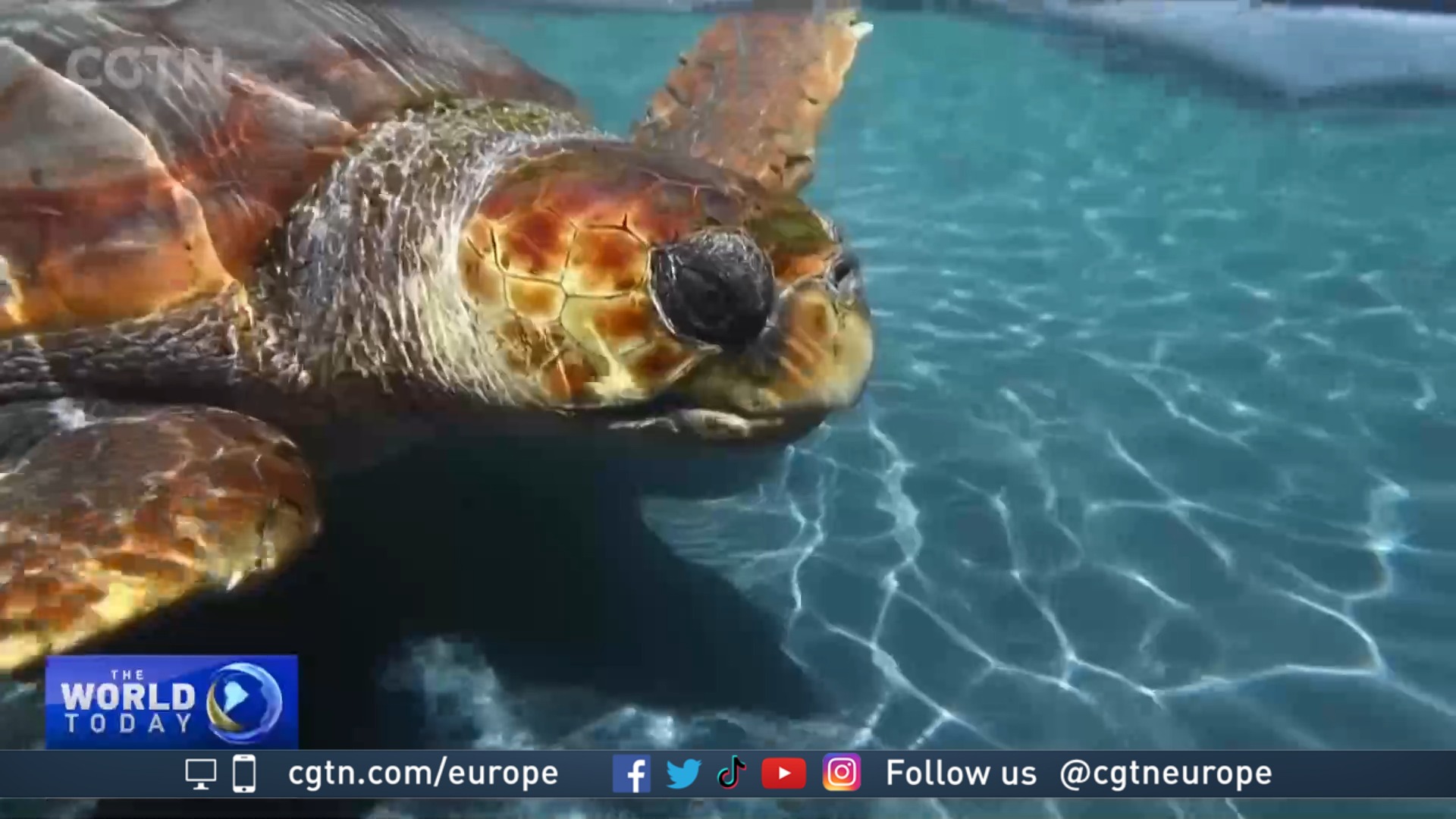02:14

Loggerhead sea turtles have started nesting on Mediterranean beaches with some scientists suggesting climate change maybe giving the threatened species fresh habitat. Loggerheads are the largest of all hard shelled turtles which can grow to almost a meter in length and they are found in warm waters throughout the world including Florida, Mozambique and Australia.
And now with rising temperatures in the Mediterranean, loggerhead turtles are increasingly laying their eggs on beaches in Spain, France, Italy and Tunisia. Biologists and volunteers at a turtle rescue center on Spain's Canary islands are part of a project monitoring the turtle population across the region.
READ MORE
Greek police investigate officer who opened fire
Village basketball tournament goes viral
One in every six adults experience infertility
"We believe that this trend happening along the Spanish, French and Italian Mediterranean coasts could be a new colonization process," said Ana Liria, president of ADS Biodiversity.
"One of the main causes to explain this trend could be global warming, climate change. Areas where turtles never used to reach because they were not adequate for laying eggs are getting warmer and perhaps now that these areas are warmer, they are now adequate."

Loggerhead turtles have been nesting on Mediterranean beaches. /CFP.CN
Loggerhead turtles have been nesting on Mediterranean beaches. /CFP.CN
Their size and hard shell protect loggerheads from predators, but fishing nets, ship rotors and pollution are all significant threats for them. Rapidly declining numbers saw loggerhead turtles placed on the endangered species list but conservation efforts have helped and they have now been re-classified as vulnerable.
With numbers growing around the world, this may also contribute to their expansion into new territories.
Liria continued: "Another very important thing, another factor that we have to keep in mind is that most, or at least many of the sea turtle population, have been under conservation projects for 20, 40, 50 or even 70 years in their breeding areas.
"What this is achieving is that many of these populations are improving. If a population is better they begin to spread out."
Loggerheads may be taking advantage of warmer waters in the Mediterranean but as more exotic species arrive there are concerns this could threaten food supplies and have a detrimental impact on native marine life.